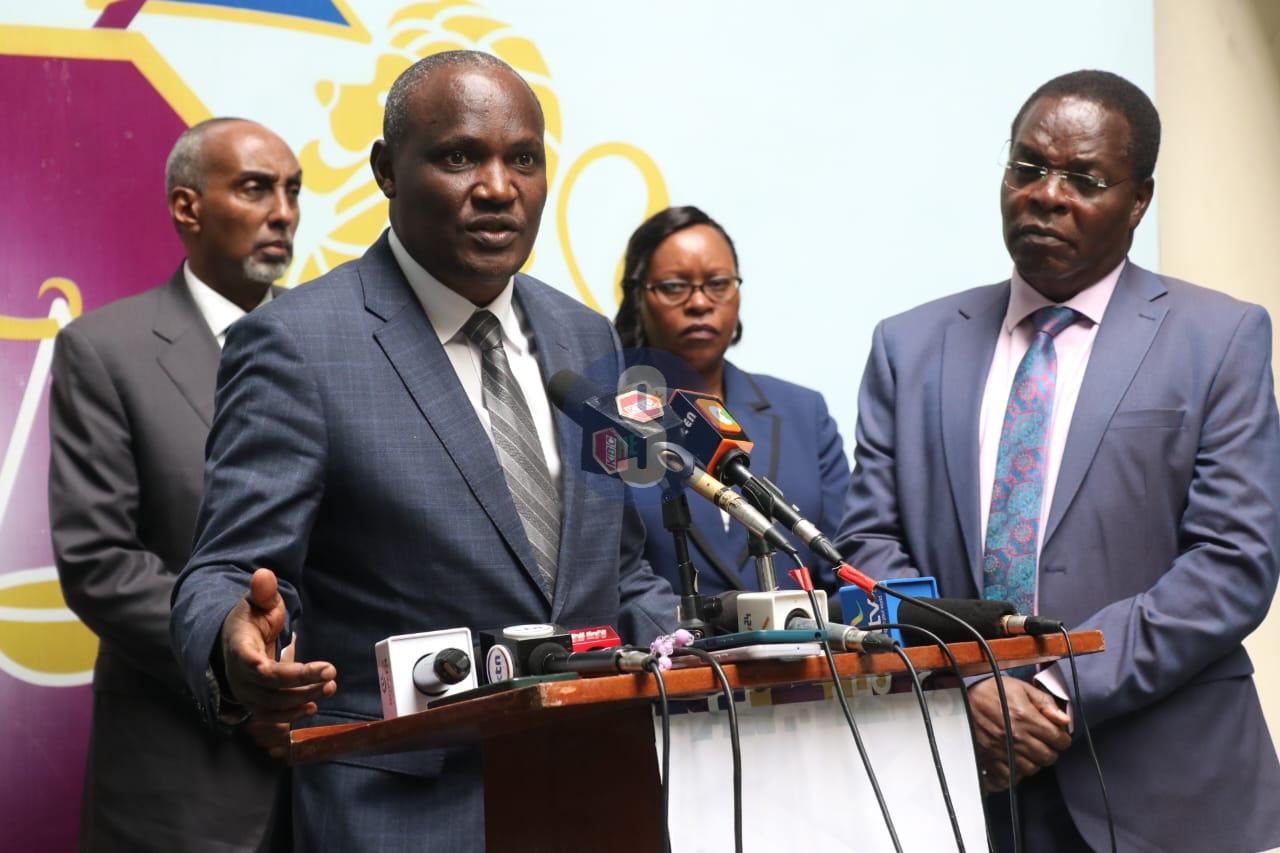

National Treasury Cabinet Secretary John Mbadi has
outlined a series of ongoing reforms aimed at combating corruption and strengthening
public finance management.
Speaking during a press briefing at the Ethics and
Anti-Corruption Commission (EACC) Integrity Centre on Wednesday, Mbadi emphasised
the urgency of plugging resource leakages and promoting fiscal discipline.
“Corruption is a very serious problem in our country,
especially in current cases like capitation funds going to schools that don’t
exist, while real students go without money,” Mbadi said.
He also cited ghost hospitals receiving payments
despite having no patients or facilities, saying the Treasury had investigated
and confirmed such anomalies.
To address these challenges, Mbadi said the government
had rolled out the Electronic Government Procurement (EGP) system, aimed at
eliminating irregularities in procurement.
“We want to reduce or eliminate corruption in
procurement, which has been a major concern,” he noted.
He added that the Treasury is transitioning from
cash-based accounting to accrual accounting, enhancing asset management and
financial transparency.
“Sometimes, we do not even know the value of what we
own. This reform will fix that,” he said.
A major highlight of his remarks was the full
integration of public sector payrolls beginning August 2025.
“All MDAs and county assemblies will now be paid
through an integrated payroll system to eliminate ghost workers and double
entries,” Mbadi said, adding that counties would not be exempt.
He also mentioned the zero-based budgeting approach
being implemented to curb inflated pricing of commodities by government
departments and improve value for money.
On pensions, Mbadi announced notable progress in
payment timelines.
“This month, we paid pensions on the 26th, something
that used to spill into the following month. Retirees must get their dues on
time,” he said.
He reported that 97 per cent of outstanding lump-sum
payments had been cleared and warned of strict action against corruption in
pension processing.
Mbadi also welcomed the signing into law of the
Conflict of Interest Act, saying it would strengthen integrity enforcement and
complement Treasury reforms.
On EACC’s role, he pledged greater financial support.
“Despite a constrained fiscal space, we will ensure
the EACC has the capacity it needs. We are the net beneficiaries of their
work,” he said.
Mbadi revealed that the commission had received 100 per cent of its budget allocation for the first time in years.
Responding to media queries on ghost schools, Mbadi
dismissed what he termed “misinformation” surrounding the matter.
However, EACC officials confirmed they would
investigate allegations flagged by the Auditor-General regarding non-existent
schools receiving government capitation.
“We will go back and find out the facts. If ghost schools
and hospitals exist, we will act accordingly,” EACC chairperson David Oginde
said.

















